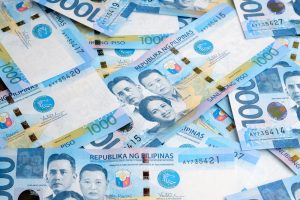The Philippines has been hammered by one of Asia’s worst coronavirus outbreaks. So has its economy, which contracted by 9.6 percent last year – and its recovery could take longer than previously expected.
The World Bank cut its GDP growth forecast for the Philippines in 2021, saying it will likely be lower than expected at 4.7 percent, down from its previous projection of 5.5 percent.
That number also comes in below the Philippine government’s own projection of 6 to 7 percent growth this year – a figure revised downward from a previous estimate of 6.5 to 7.5 percent.
World Bank senior economist Kevin Chua cited “significant downside risks” to the country’s economic prognosis—in particular, a spring surge of infections due to the spread of new COVID-19 variants, which has caused authorities to reimpose strict lockdown measures.
The country’s GDP shrank by 4.2 percent in the first quarter of 2021, a more severe contraction than had been expected. This happened despite the loosening of quarantine restrictions in the first quarter of 2021.
The Philippine economy had been on the rise before the COVID-19 pandemic, sustaining an average annual growth of 6.4 percent between 2010 and 2019. But strict countrywide lockdowns instituted during the pandemic caused businesses to close and stranded informal workers from their sources of income.
The government passed two financial stimulus bills last year which provided targeted relief to workers in certain sectors, although critics have called them insufficient.
The Philippine House of Representatives passed a third stimulus bill on June 1 in a near-unanimous vote, which advocates say would provide crucial cash relief to Filipinos suffering from hunger and unemployment.
The Senate, however, cannot consider the bill until it resumes session on July 26.
House Deputy Minority Leader Carlos Zarate on Tuesday urged President Rodrigo Duterte to certify the new relief bill as urgent, citing troubling new unemployment and inflation figures.
Unemployment climbed to 8.7 percent in April, equivalent to 4.14 million Filipinos. Inflation hit 4.5 percent in May, well ahead of the government’s target of 2 percent to 4 percent.
“The Duterte administration should no longer ignore calls for grant of [help] or subsidy for our suffering people,” Zarate said.
Philippine imports and exports both grew in April, rising faster than they have in more than a decade. The country’s trade deficit was $2.73 billion, the tenth straight month it has been higher than $2 billion, according to data from the Philippine Statistics Authority.
































